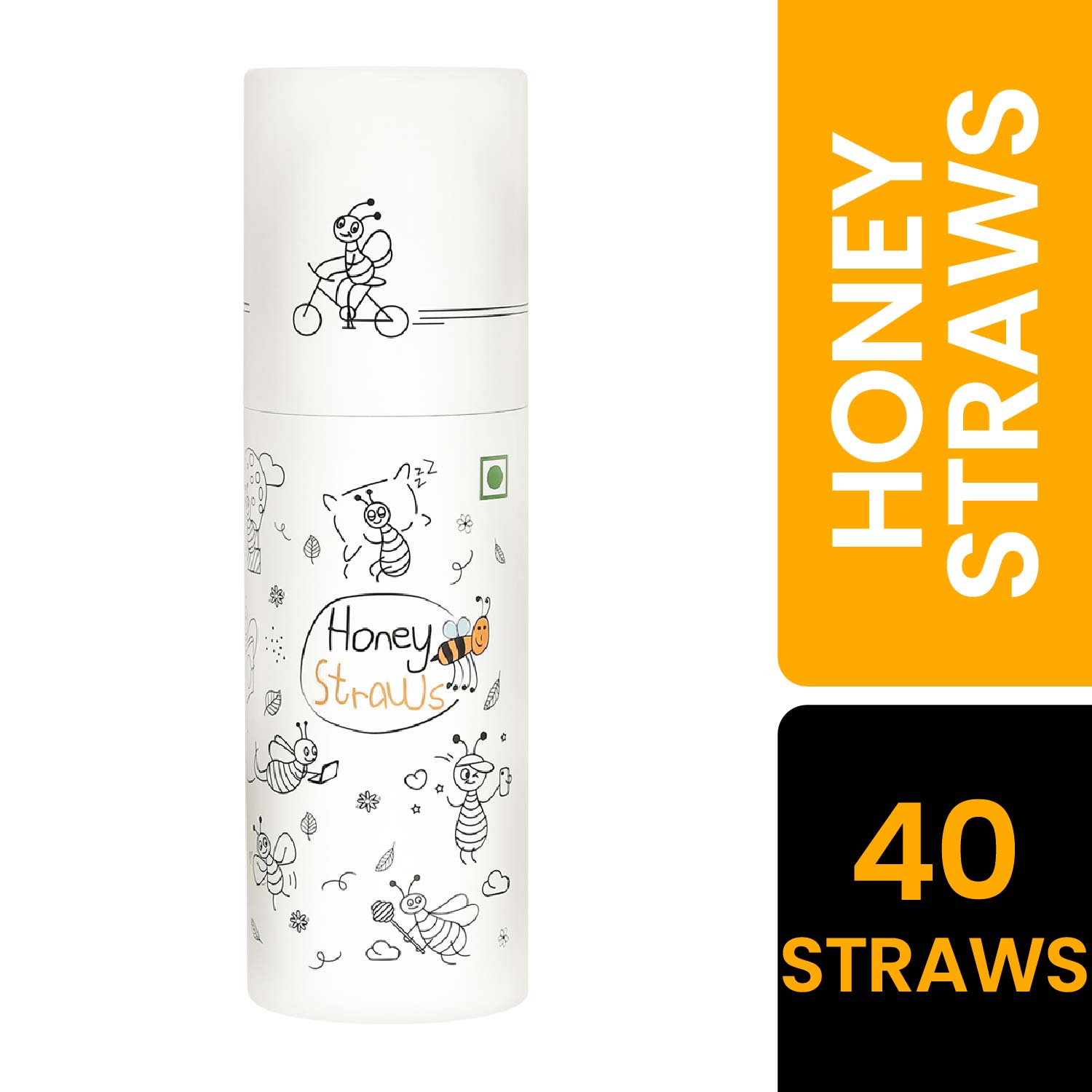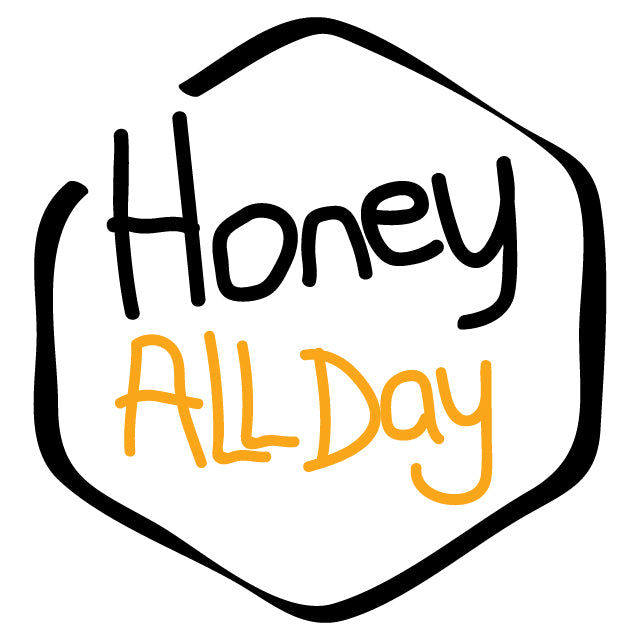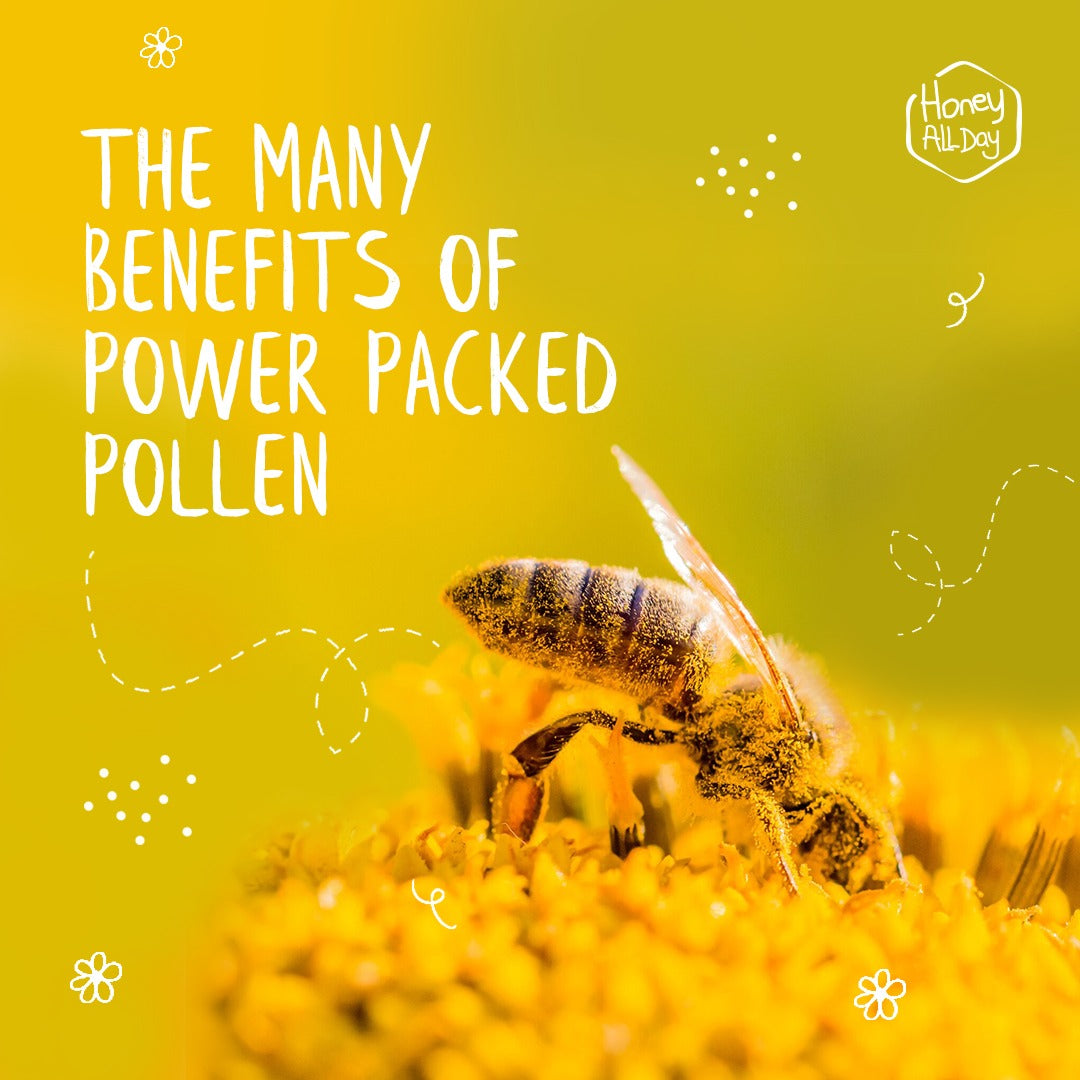Pollen counts, Plan grains, Bee Pollen, etc. You’ve probably heard the word ‘pollen’ a lot, but have you ever wondered, what it is exactly? Why do bees dedicate their lives to it? Can pollen even do us good?
The answers to these questions and a bit more information about this precious substance are in our short guide.
To begin with, Pollen is a fine, powdery, golden substance that comes from the male part of flowers on a plant. The microscopic particles can be dispersed through the air by the wind to fertilize the female flowers of other plants. It also attaches itself to bees as they move from flower to flower.
The bee flies into the center of the flower and scrapes off some of the pollen that it stores in the hairs on its legs in a part known as the ‘honey baskets’. It repeats this from flower to flower until the moistened, pressed down, collected pollen becomes a round granule.
We know what you’re wondering, so here’s the long list of the health benefits of pollen. Pollen is sometimes called a superfood – as well as protein, it contains over 200 other health-promoting substances like amino acids, essential fatty acids, a wide spectrum of vitamins, minerals, enzymes, antioxidants, micronutrients, and flavonoids. It cannot be made artificially and scientists still haven’t identified all its precious components.
This powerhouse of nutrients sustains the life and growth of the bees and is considered one of nature’s complete foods. It has been used therapeutically by many ancient civilizations such as the Chinese, Romans, and Egyptians. Hippocrates and Pythagoras prescribed bee pollen for its healing properties and it sustained Native Americans on long journeys.
Today it is used as a health supplement; studies and trials credit bee pollen as the root of many benefits including:
Energy and stamina
The high levels of natural protein, that the body can absorb easily in this form, helps to build muscle tissue and aid in cell renewal. The British Sports Council recorded a 40-50% increase in strength in athletes who had taken bee pollen regularly and it is used by Olympic athletes and bodybuilders to increase strength and endurance.
Preventative medicine
Substances in pollen may stop the growth of harmful bacteria in the gut, having a balancing effect on the digestive system. There have been reports of people lowering their cholesterol levels when taking bee pollen.
Anti-inflammatory and pain relief
Some studies indicate that bee pollen lessens pain due to its anti-inflammatory properties (reducing swelling) even in some cancer cases.
Hormone regulation
Other areas where studies show encouraging signs and there is positive anecdotal is in the treatment of infertility (by stimulating the ovaries) and reducing the side effects of menopause (such as hot flushes).
Concentration and focus
Pollen is a rich source of vitamins B1, B2, and B3 which are essential for a healthy nervous system and brain.
We know that was a load of wisdom for today, but the next time you hear the word Pollen and honey, just remember that ‘Honey All Day’ has truly raw honey with high POLLEN counts.





